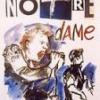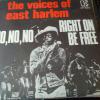- Replies 8
- Views 1.5k
- Created
- Last Reply
Most active in this topic
-
 Dave Rimmer 1 post
Dave Rimmer 1 post -
 Gert Mark 1 post
Gert Mark 1 post -
 Hold Tight 1 post
Hold Tight 1 post -
 arnie j 1 post
arnie j 1 post





I searched and it looks like there was a thread about this when it was a possibility - now it appears to be happening...
https://www.nytimes.com/2008/01/21/nyregion/21records.html
I'd actually already pulled out a couple Bobby Robinson prod's to play on Saturday night, unbeknownst to me! Now I think I'll dig out a few more.
juddy
pixxburgh
January 21, 2008
In Harlem, 2 Record Stores Go the Way of the Vinyl
By TIMOTHY WILLIAMSOn Saturday morning, Bobby's Happy House, a music store in Harlem that opened in 1946, was in a state of chaos.
The store's owner, 91-year-old Bobby Robinson, who was wearing a dark blue suit and his trademark black fedora, seemed bewildered as he surveyed his store. Albums were stacked on the floor, photographs of him with Fats Domino, James Brown and others had been pulled from the walls and the store's glass display cases contained only a few scattered CDs and cassette tapes.
A few hundred yards northwest, at the Harlem Record Shack on 125th Street, an employee with a handmade sign was urging passers-by to sign a petition to keep that store from being evicted.
Inside, the voice of the store's owner, Sikhulu Shange, 66, rang through the Record Shack as he vowed not to go easily, even though he was under a court order to leave within a few weeks, after 36 years in business there.
Mr. Robinson and Mr. Shange, who have been friendly rivals for Harlem's music dollars for almost two generations, are on the cusp of being forced out of business here within weeks of each other as Harlem continues its uneasy transition from being a haven for some of the city's poorest residents to a place where apartments selling for $1 million and tripling commercial rents have become unremarkable occurrences.
Bobby's Happy House, on Frederick Douglass Boulevard near 125th Street, is closing on Monday, Martin Luther King Jr. Day. Mr. Shange has been given until the end of March to vacate his store.
Each man represents a distinct generation of black men who arrived in Harlem as young men seeking to contribute to a neighborhood they had long heard about and had admired.
Mr. Robinson, originally from South Carolina, came after World War II. He speaks in the language of that time, using words like "colored," which has long been retired.
Mr. Shange, who arrived from South Africa in the 1960s, came of age during that era's tradition of protest. He wears dashikis and repeats words like "empowerment."
Each man said the runaway pace of change in the neighborhood during the past few years was unlike anything they had seen before.
"Everything you see here, I built," Mr. Robinson said, waving his arm around his store as friends and family members boxed up decades of mementos. "How do you think I feel?"
On the other hand, Mr. Shange, who was at the center of an eviction battle in the 1990s that culminated in gunfire and an arson attack that killed eight people, left no doubt about his feelings. He was angry.
"There was a time when everybody was running away from Harlem, but we stayed, keeping the culture alive," he said, as shoppers surveyed the small store's African, gospel, jazz and R&B selections that are kept in locked glass cases. "We don't have nothing to show for being in the community all these years and keeping it beautiful. Tourists are not coming here to see McDonald's and Burger King. They are coming here to see black culture."
The two stores have survived so long, the owners say, because they offer services and products customers cannot get anyplace else.
At Bobby's Happy House, those services included recording albums onto cassettes or CDs for customers and allowing visitors to pull up a plastic chair and chat with Mr. Robinson, who was a noted record producer. His work included Wilbert Harrison's No. 1 hit "Kansas City" in 1959 and groundbreaking hip-hop songs by Doug E. Fresh and Grandmaster Flash and the Furious Five during the late 1970s.
The inspiration for the name of Bobby's Happy House, which has had various names over the years, was a doo-wop song Mr. Robinson wrote for Lewis Lymon & the Teenchords in 1956 called "I'm So Happy," a hit in the Northeast. (Lewis Lymon was the younger brother of Frankie Lymon, best known for a song with the Teenagers, "Why Do Fools Fall in Love?").
At the Record Shack, customers have found in Mr. Shange, a former dancer, an authoritative source on American soul music and hard-to-find African music. In a nod to their customers, both stores continued to sell records and cassette tapes, formats most other stores have not sold for years.
"A lot of old people are ashamed to go to a store and ask them for cassettes," said Mr. Robinson's daughter, Denise Benjamin, who has managed Bobby's Happy House for her father in recent years.
Both Mr. Robinson and Mr. Shange said it was unclear what role the downturn in the record music industry has had on their stores, but HMV and the Wiz, two large retailers that sold CDs and other items, have closed stores on 125th Street during the past few years.
Mr. Robinson and Mr. Shange said they had been caught off-guard by their evictions and the transformation of the neighborhood. Each has a different landlord. Within a few blocks of their stores are more than a dozen construction sites for projects that include a 19-story hotel, office towers and luxury co-ops and condominiums.
Once the last of the old records have been cleared from Bobby's " and other tenants in the block-long building have moved out " the new owners, a partnership of the Sigfeld Group and Kimco Realty Corporation, have said they will tear down the structure and replace it with a four-story office building, including retail space on the ground floor. None of the old tenants, including Mr. Robinson, said they had been invited to set up shop in the new building. Several store owners have filed a lawsuit contesting their evictions.
Ms. Benjamin said family members decided not to join the lawsuit because they wanted to save their money to find a location nearby.
Representatives for Sigfeld and Kimco, which bought the building for $30 million in August, did not respond to phone calls and e-mail messages seeking comment. Mr. Shange's landlord, the United House of Prayer for All People, won a court order forcing Mr. Shange to leave the store empty and "broom clean" by March 31. The church has not announced its plans for the space, and a church representative at its headquarters in Washington declined to comment. David M. Grill, the attorney representing the church in New York, did not return a phone call and an e-mail message seeking comment.
Mr. Shange, who has been paying $4,500 a month " about $500 more a month than Mr. Robinson at Bobby's Happy House " said that he was willing to pay more, but that the church, which is above the store, had refused to negotiate.
Mr. Shange said the store was organizing a protest rally on Sunday at 11 a.m., when many of the church's parishioners will be arriving for services.
A flier at his store advertising the rally reads: "Protest Greedy Landlords! We will not be moved from Harlem!!! We must reclaim, preserve and protect our historic black community. If we do not, no one will!!!"
Eight thousand people have signed a petition opposing his store's eviction, he said.
When Mr. Shange faced eviction in 1995 during a dispute with a different landlord, who held the sublease for the Record Shack, weeks of demonstrations over the plans of the landlord, who was white, to evict the black-owned store took on a racial tinge. The dispute ended after a protester walked into the landlord's store, which was next to the Record Shack, carrying a handgun and a container of paint thinner. After shooting and wounding four people, he set the store ablaze before shooting himself. He and seven other people died in the blaze.
Mr. Shange said he expected the coming demonstration to be peaceful, just as others in support of his store have been in recent months.
Unlike Mr. Shange, Mr. Robinson's daughter said she did not particularly object to the changes occurring in Harlem, which have included new bank branches and grocery stores.
"I don't mind change, but when people have had to endure everything " and you know if you've been here 60 years you've endured a lot," she said, her voice trailing off. "This is everything to him."